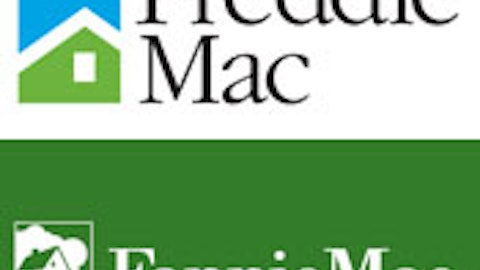In this article we are going to list the best Ivy League schools ranked by selectivity. Click to skip ahead and jump to the 3 best Ivy League Schools ranked by selectivity.
When you think of Ivy League schools, you think of the most prestigious schools not just in the US but also in the world. Schools which are the dream of every person who wants to go to college, and schools that would cost an arm and a leg just for the fees for one semester. You think of the 1% of the top 1%, and how some of the richest and most influential people in the history of the US have gone to these schools.
The funny thing is, the term Ivy League wasn’t created to separate the most prestigious schools from the rest. In fact, it was created for an athletics conference between the 8 schools. However, as time went by, the term Ivy League was referred to these schools for their academic excellence, prestige and even elitism, which I will talk about later. The Ivy League schools currently consist of 8 members, which are Brown University, Cornell University, Columbia University, Dartmouth College, Harvard University, the University of Pennsylvania, Princeton University and Yale University.

f11photo/Shutterstock.com
As I mentioned earlier, these colleges are accused of elitism and maybe that’s in their culture since 7 of the 8 colleges (except Cornell)) were founded before the American Revolution and with time comes a level of superiority. Of course, they’re not the only super group of colleges, with the UK having Oxbridge, Japan having Imperial Universities and China having the C9 League. However, no other group comes close to the reputation and fame that the Ivy League has.
I mentioned earlier there is a level of elitism associated with the Ivy League. While those who belong to these colleges may dismiss it as pure jealousy, there is some truth to this statement. They have employed policies which would seem out of touch even 50 years ago. In the 1970s, the US government created a law which forbade educational institutions based on gender. Which actually seems quite late for a law that grants basic rights, but somehow the Ivy League was still not on board and actually lobbied against it successfully, because of which it is actually harder for women to get into Ivy League schools, since private colleges are exempt from this law. Why did this happen? Because Ivy League schools still have a mindset that is generally more prevalent in developing countries with conservative societies that women will get married and hence waste their education and qualifications.
Moving on to endowment funds, the Ivy League schools have some of the biggest endowment funds in the world. Private US institutions are extremely rich, to the tune of billions of dollars, yet still have some of the most expensive educational programs which price out a large percentage of the student population. In 2018, the total endowments for private US institutions was $479 billion in 2018. Brown is the poorest of the Ivy League schools, with total endowment of ‘just’ $4 billion while Harvard has the biggest educational endowments in the world at $40 billion. Yet these are just used to fatten teacher’s salaries and provide facilities for the rich students who are already able to afford such expensive education. This is why a girl who thought she would be covered by financial aid at Cornell, had to actually resort to stripping so she could pay for some of the extra costs such as expensive text books (which is another rabbit hole altogether), activity fees and miscellaneous expenses.
But at the end of the day, this is all worth it right? You get the best possible education from the best teachers in the world, and no one else can come close. Well, the latter statement may be correct but it isn’t just because of the education, which you could also obtain at a similar level at some less expensive schools. The fact that the most elite and richest people go to the school, teach in the school and are members of the school opens networking opportunities unlike anywhere else. And in today’s world, having those sorts of connections is the most important thing. If you’re looking for the easiest business majors in Ivy league schools so you can get the connections without having to make an exceptional effort in studies, consider taking a look at this article.
Of course, even the richest schools in the world are not exempt from the Covid-19 pandemic which has claimed over a million lives and has really affected educational institutions which were the first to close down and in many places, have still not opened. Classes will mostly be held remotely in fall, and many institutes that have opened had to close down again because a lot of students started being infected, and they have failed to practice social distancing, instead opting to hold parties.
Over 200,000 students apply to Ivy League schools every year. Less than 7% were admitted to the schools. Cornell is the only college which has an acceptance rate of over 10%. Of course, being admitted to Ivy Leagues doesn’t really mean you’re incredibly intelligent; it could be more to do with your connections and pull. After all, Donald Trump is a graduate of the University of Pennsylvania and while he may have tens of millions of followers who think he is the best thing to have happened to the United States, you can see objectively that this is not the case. To determine the most exclusive Ivy League schools, we have ranked them according to their acceptance rates for the class of 2024 and 2023. We calculated the rankings for the acceptance rate of each year, giving 60% weightage for the acceptance rate for the class of 2024, as this is the most recent and relevant metric. So let’s take a look at the schools where prestige meets elitism, starting with number 8:
8. Cornell University
Acceptance rate in 2023: 10.6%
Acceptance rate in 2024: 10.7%
It is the most recent of all Ivy League schools, and was ‘only’ established in 1865, going strong for 155 years now. At the time, it had a very unique approach where it would teach all fields of knowledge, an unconventional idea at the time. It is one of the few land grand universities in the US and has ownership of over 4,300 acres, of which 745 acres are for the Cornell University Ithaca campus.
Cornell has had a lot of very successful students who have gone on to achieve greatness in various fields, including 59 Nobel laureates, one Fields Medalist and four Turing award winners. It has over 250,000 living alumni and also counts among its own, 33 Rhode Scholars, 33 Marshall Scholars, 29 Truman Scholars, 55 Olympic medalists, 7 Gates Scholars, 35 billionaires and 10 Fortune 500 CEOS, truly distinguished company indeed. Currently, people from around 119 countries make up part of the 15,000 under graduate and 9,000 graduate students studying in the university.

Pixabay/Public Domain





